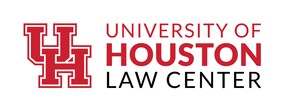HOUSTON, May 22, 2014 /PRNewswire-USNewswire/ -- American workers are mistakenly overpaid billions of dollars a year by employers who recoup their money after discovering their error by taking it out of employees' future paychecks with no controls over when or in what amounts.
Professor Jim Hawkins of the University of Houston Law Center believes this unregulated collection of "debt" is wrong, often leaving the hapless employee, many of whom are low-income and unaware of small, unearned increases in their paycheck, in financial straits. He focuses on those in the military who are typically low-income and whose paychecks frequently change from one to the other because of variables such as seniority, placement, deployment, and classification. Hawkins says seemingly small deductions for restitution can drive many wage-earners to pawn shops, food banks and welfare offices to support their families until the unearned, extra money is repaid.
"Involuntary, unknowing and often financially fragile employees have been left out in the cold under current debt laws," Hawkins writes in his research article, "Law's Remarkable Failure to Protect Mistakenly Overpaid Employees," to be published by the Minnesota Law Review later this year. "Self-help," letting the employer devise his own plan for recouping overpayment, Hawkins continues, "allows the employer to act as a judge, a jury and an agent to execute the judgment without any oversight from courts."
The professor argues that these employees should be given the same protections as people who incur debt through their own actions such as running up their credit cards. These debtors are protected under state and federal laws, including various provisions of the Fair Labor Standards Act and safeguarded from overzealous, aggressive collectors under terms of the Fair Debt Collection Practices Act. Their ultimate recourse is bankruptcy to clear outstanding debt. None of these remedies is available to those unknowingly overpaid and facing hardship for their families and others, including other creditors.
Hawkins suggests two simple remedies: judicial reform of restitution law to recognize that most people do not spend an increase in income, especially a small and even unrecognized one, on large expenditures or luxuries, but rather on day-to-day living expenses; and secondly, a legislative fix to treat overpayments as any other unsecured loan for state and federal collection purposes and prohibit employers from "setting-off" overpayments from an employee's wages.
"There is a deep and disturbing variance between how current law treats people who take out unsecured debt like credit cards and employees who are mistakenly overpaid by their employers," Hawkins writes in conclusion. "Moreover, the law contradicts basic intuitions — the innocent party that did not agree to the debt and did not know about the debt has significantly fewer rights than the party who volunteered for the transaction."
To interview Professor Hawkins contact: Carrie Criado, UH Law Center Executive Director of Communications and Marketing, 713-743-2184, [email protected]; John T. Kling, UH Law Center Communications Manager, 713- 743-8298, [email protected]; or Stephen B. Jablonski, Media Specialist, 713-743- 1634, [email protected].
About the University of Houston
The University of Houston is a Carnegie-designated Tier One public research university recognized by The Princeton Review as one of the nation's best colleges for undergraduate education. UH serves the globally competitive Houston and Gulf Coast Region by providing world-class faculty, experiential learning and strategic industry partnerships. Located in the nation's fourth-largest city, UH serves more than 39,500 students in the most ethnically and culturally diverse region in the country.
About the University of Houston Law Center
The University of Houston Law Center is the leading law school in the nation's fourth-largest city. Founded in 1947, it is a top-tier institution awarding Doctor of Jurisprudence (J.D.) and Master of Laws (LL.M.) degrees. The Law Center is fully accredited by the American Bar Association and is a member of the Association of American Law Schools.
Logo - http://photos.prnewswire.com/prnh/20120118/DM38067LOGO
SOURCE University of Houston Law Center
WANT YOUR COMPANY'S NEWS FEATURED ON PRNEWSWIRE.COM?
Newsrooms &
Influencers
Digital Media
Outlets
Journalists
Opted In




Share this article